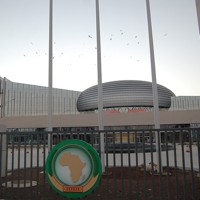Ten years ago in Durban, South Africa, the African Union (AU) was formed to spearhead security, stability and prosperity in Africa. The AU built on the foundations of its predecessor, the Organization of African Unity (OAU), which had provided the framework for African cooperation since the early 1960s. Equally significant, the AU has co-existed with multiple subregional organizations, called Regional Economic Communities (RECs), such as the East African Community (EAC), the Economic Community of West African States (ECOWAS), the Southern African Development Community (SADC), the Economic Community of Central African States (ECCAS), the Inter-Governmental Authority on Development (IGAD) and the Common Market for Eastern and Southern African States (COMESA). In addition to finding solutions to African problems, all these institutions have served as critical avenues by which external actors have contributed to African security.
In examining the evolution of conflict-resolution mechanisms used by regional and subregional organizations over the past decade, certain historical examples are instructive in understanding the efficacy of endogenous institutions in meeting security challenges. Moreover, since African leaders have invoked the notion of local solutions to African problems, it is important to grasp the opportunities and obstacles facing efforts toward the realization of this objective.
The Institutional Setting: The AU and RECs in African Security

